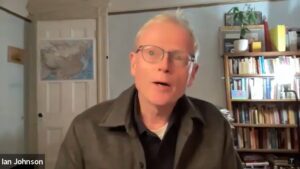
A large number of the illegal immigrants entering the US from Mexico are Chinese, and not only poor Chinese, says China scholar Ian Johnson in DW. They mostly rely on dubious information on TikTok and have no clue what kind of adventure they get into, he adds.
DW:
The phenomenon of Chinese people entering the United States via the southern border has come to be described by the term “Zouxian,” which can roughly be translated as “take the risk” — and the term’s broad dissemination on social media platforms has led many young Chinese to do just that.
“They rely on social media more in China for getting their information,” said Ian Johnson, a China expert at the US Council on Foreign Relations. “In the Western countries, you would say: ‘What does the mainstream media say about it?’ But, in China, there is no way to fact- check.” Johnson said it concerned him that so many of those young people have no idea what they are getting themselves into.
Johnson said the situation would not just hit the very poor.
“The economic slowdown is affecting broader ranges of the population, including the lower middle class,” Johnson said. He added that increased political persecution under President Xi Jinping has also fueled a desire to leave China behind.
Ian Johnson is a speaker at the China Speakers Bureau. Do you need him at your meeting or conference? Do get in touch or fill in our speakers’ request form.
Are you looking for more stories by Ian Johnson? Do check out this list.



